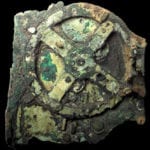 History
History  History
History  Movies and TV
Movies and TV 10 Movie Adaptations That Ruined Everything for Some Fans
 History
History 10 Dirty Government Secrets Revealed by Declassified Files
 Weird Stuff
Weird Stuff 10 Wacky Conspiracy Theories You Will Need to Sit Down For
 Movies and TV
Movies and TV 10 Weird Ways That TV Shows Were Censored
 Our World
Our World 10 Places with Geological Features That Shouldn’t Exist
 Crime
Crime 10 Dark Details of the “Bodies in the Barrels” Murders
 Animals
Animals The Animal Kingdom’s 10 Greatest Dance Moves
 Movies and TV
Movies and TV 10 Box Office Bombs That We Should Have Predicted in 2025
 History
History 10 Extreme Laws That Tried to Engineer Society
 History
History 10 Wars That Sound Made Up (but Absolutely Happened)
 Movies and TV
Movies and TV 10 Movie Adaptations That Ruined Everything for Some Fans
 History
History 10 Dirty Government Secrets Revealed by Declassified Files
Who's Behind Listverse?

Jamie Frater
Head Editor
Jamie founded Listverse due to an insatiable desire to share fascinating, obscure, and bizarre facts. He has been a guest speaker on numerous national radio and television stations and is a five time published author.
More About Us Weird Stuff
Weird Stuff 10 Wacky Conspiracy Theories You Will Need to Sit Down For
 Movies and TV
Movies and TV 10 Weird Ways That TV Shows Were Censored
 Our World
Our World 10 Places with Geological Features That Shouldn’t Exist
 Crime
Crime 10 Dark Details of the “Bodies in the Barrels” Murders
 Animals
Animals The Animal Kingdom’s 10 Greatest Dance Moves
 Movies and TV
Movies and TV 10 Box Office Bombs That We Should Have Predicted in 2025
 History
History 10 Extreme Laws That Tried to Engineer Society
10 Famous People Known In Their Time For Surprising Things
Over time, the public perception of prominent people is bound to shift. New information may come to light, political correctness may evolve, or certain myths may change in significant ways. Some cases go far beyond mere shifts in perspective and become something else entirely, such as the cases below.
10Paul Revere
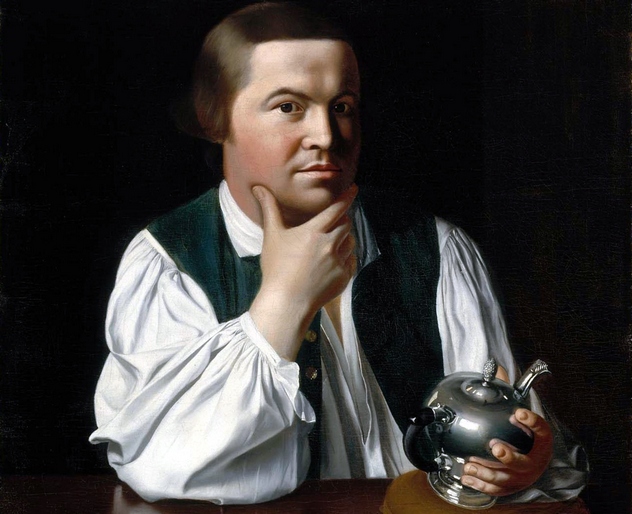
Known now as:
One of the riders instrumental—through his famous “Midnight Ride”—in assembling a force of militia for the 1776 Battles of Lexington and Concord, which were vital to American victory in the Revolutionary War. Historians have since noted that for all his fame—widely attributed to the poet Henry Longfellow’s poem written long after Revere’s death—Revere hardly was the most significant person in that historical effort. For example, one Sybil Ludington rode twice as far as he did on that momentous night.
Known then as:
Part of an immense military debacle that devastated America’s armed forces. Much less remembered than the Battles of Lexington and Concord is the 1779 Battle of Penobscot Bay. Despite having a four-to-one advantage in ships and a larger number of soldiers, it was such a complete defeat for the Americans that they lost every one of their 43 ships and half of their army in a bungled joint effort. Heads inevitably had to roll for such a disgrace, and one of those was Paul Revere’s, who was court-martialed and placed under house arrest on charges of cowardice. Although two years later he was cleared of the charges, such a scandal completely overshadowed his “Midnight Ride” at the time.
9Pocahontas
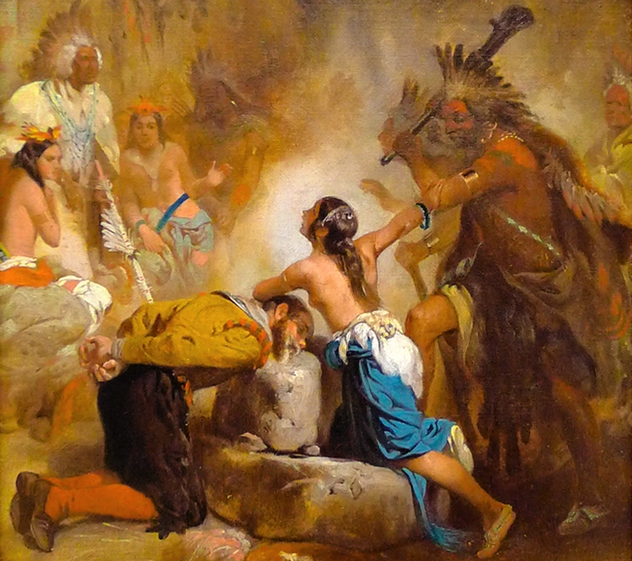
Known now as:
The savior of early American explorer John Smith during an attempted execution in 1608 by her tribe, the Powhatans. This was supposed to have brokered a temporary peace between the Native Americans and their English conquerors. Her act was also a symbol of how the Native Americans could be reasoned with and America made a safe place to settle.
Known then as:
There’s considerable evidence that, rather than being any sort of heroic savior, Pocahontas was notable purely for being the first Native American to marry a European. She was merely an ambassador between Britain and America. Much less known than her original name is her adopted one of Rebecca Rolfe, which she’d taken before traveling to the British Isles with her husband John. The story of her saving John Smith wasn’t told by him until 16 years after it was supposed to have happened—and well after Pocahontas had died. Such a dramatic event would have surely come up earlier if it were true. At the time, Smith said only that Pocahontas brought him presents of appeasement from her tribe, which is hardly as dramatic or inspiring as saving him from execution.
8Confucius
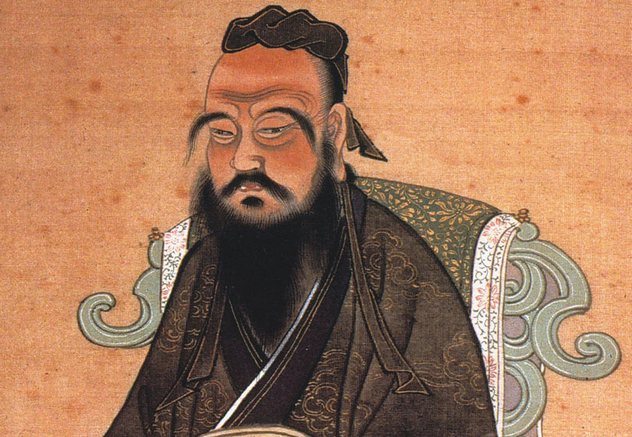
Known now as:
An invaluable teacher that codified and formalized China’s ancestor worship with his teachings known as The Analects. His wisdom has influenced generations for millennia and is still celebrated. Even the wisest of us gather quotations of his for guidance.
Known then as:
A not terribly successful teacher. Confucius spent years going from fiefdom to fiefdom looking for a client monarch. While there were some that appreciated his ideas, they did not begin to be adopted in his day. Confucius was so careless at recording his teachings that he didn’t personally write anything in The Analects, leaving that task to his survivors.
Legend says that the reason we know of Confucius today at all is because of a lucky happenstance centuries after his death in 479 B.C. The Analects remained obscure documents until after the reign of an emperor who sought to destroy all books of philosophy. During that purge, a copy of The Analects was hidden in a wall. It was recovered 60 years after the emperor died, when the new ruler was much more tolerant of philosophical writings. It seems safe to say that few people at the time of Confucius’s passing would have suspected he’d still be spoken of today.
7King John
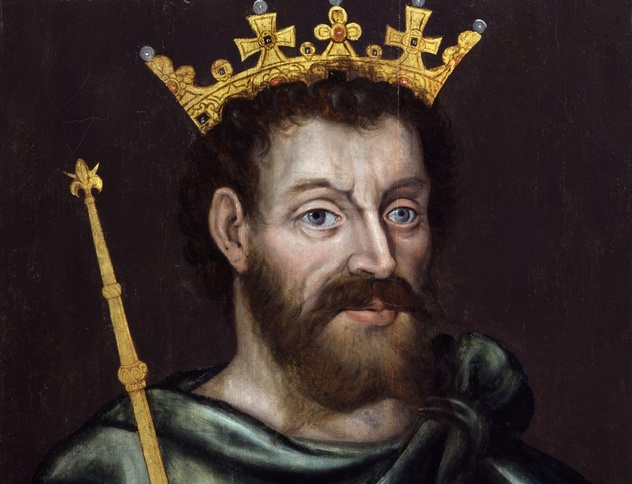
Known now as:
One of the worst rulers in British history, King John was so awful that he was famously forced by the nobles to sign the Magna Carta in 1215. Most devastatingly, he was portrayed as a sniveling, greedy Lion in the Walt Disney version of Robin Hood.
Known then as:
Contemporary accounts suggest that King John was a much better ruler than his reputation suggests. Rather than being a tyrannical money-grubber, King John was described in his day as being generous to the poor, forgiving debts when it was clear that his subjects couldn’t pay as a result of deprivation from rebellions that happened during his reign. He was also praised for his capability as a military commander and for his humane treatment of prisoners of war.
Much of the reason that his legacy is so negative is because he was ultimately ousted from power, so his enemies got to write the more prominent stories about him. On top of that, he alienated much of the clergy by taxing them. That some clergymen still had nice things to say about him (such as the above account about forgiving the debts of the needy) is a good testament to how the positive accounts of him are not merely propaganda.
6King Solomon
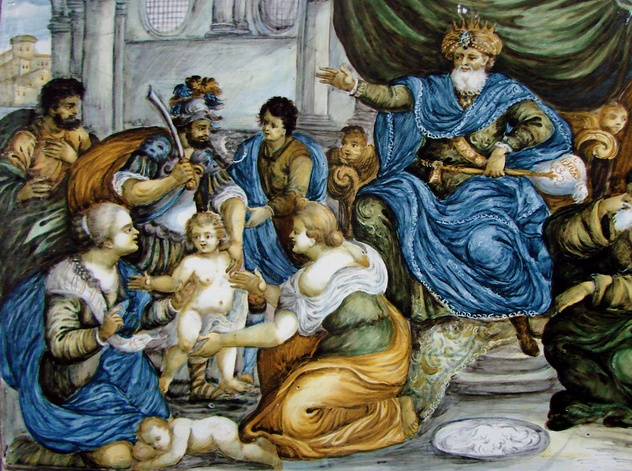
Known now as:
His name is basically shorthand for a wise ruler. The single most famous incident from his reign is supposed to be a showcase for his shrewdness and insight into human nature: Two women came before Solomon, each claiming to be the mother of a baby. Solomon advised cutting the baby in half. It turned out, of course, that the real mother was the one that was willing to give up her baby instead of seeing it cut.
Known then as:
A horrible tyrant that abused his people. To build a luxurious palace for himself, he emulated the pharaohs of Egypt by enslaving many Judean citizens. Indeed, the suffering he inflicted upon the people of Judah was so severe that even the Bible states that the next king of Judah, Rehoboam, was asked if he would be as harsh on his people as his predecessor was. (For the record, Rehoboam supposedly caused open rebellion by saying “my father chastised you with whips, but I will chastise you with scorpions.”) In his time, this would likely have overshadowed his reputation for being wise.
5Josef Stalin
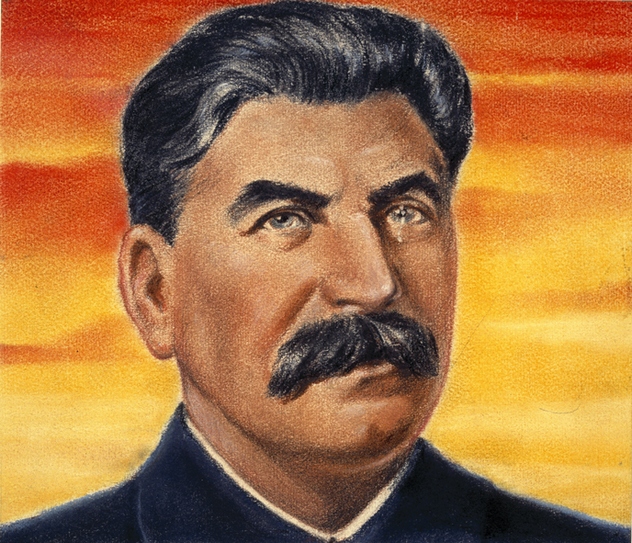
Known now as:
A dictator who rivals Adolf Hitler for the evil he committed. His purges have been estimated by some to have lead to the deaths of more people than the Third Reich’s “Final Solution.” His decision to keep Eastern Europe behind the Iron Curtain ensured that the Soviet Union was the enemy of much of the world for decades.
Known then as:
During his reign—despite his purges—Stalin was beloved by the Russian people. The population seemed to have not blamed Stalin for the atrocities they suffered, with “If only Stalin knew” being a popular expression. When he died, reportedly there was panic in Moscow over how society would continue without him, similar to what happened after the death of Kim Jong-Il. Not that America didn’t have some affection for him: For a time, he was known in America by the nickname “Uncle Joe.”
4Alexander The Great
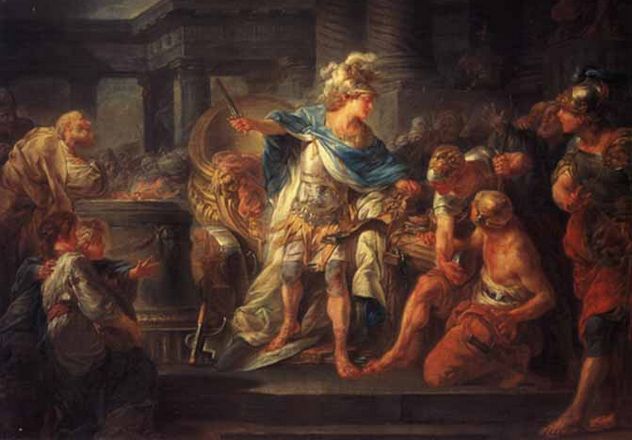
Known now as:
A genius when it came to military matters, administration, and philosophy. After all, he was a student of Aristotle, and some of that genius is presumed to have rubbed off on him. He’s the one that found a way of undoing the Gordian Knot. Napoleon Bonaparte said of him “Everything is profoundly calculated, executed with audacity, and conducted with wisdom.”
Known then as:
Many of the things that Alexander did during his conquests seem more worthy of “the Terrible” moniker. After he’d sacked the city of Tyre, he had 2,000 people crucified. On top of that, he had sold most of the women into slavery. In the city of Gaza, he had the garrison leader killed by dragging him behind a chariot. Even when he took control of the Persian capital Persepolis, which surrendered peacefully, a massacre ensued and the women were again sold off into slavery.
Alexander did much to alienate his own followers, too. After his failed conquest of India, he marched his army home through coastal desert. He claimed this was their punishment for not completing the conquest. In the course of this march, two-thirds of the troops died. He had a reputation for not sparing anyone he suspected, and the number of potential suspects increased as his paranoia grew. He had them killed in brutal ways, including death by stoning and torture on the rack. One of those he put to death through torture was Callisthenes, a philosophy teacher of a suspected attempted assassin and someone that even Alexander himself had admired. That execution in particular had outraged Greece even more than the destruction of the city of Thebes, which at least had the justification of being triggered by treachery.
3Gregor Mendel
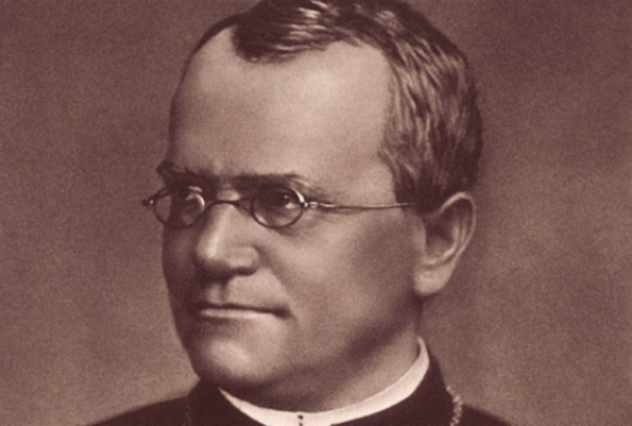
Known now as:
The father of genetic studies for his manipulation of pea plants. Mendel’s work was also widely lauded for confirming and explaining the means by which evolution occurred. That’s to say nothing of how genetics helped increase crop yields, saving an estimated billion people during the 1970s Green Revolution.
Known then for:
His work with the St. Thomas’s Abbey in Austro-Hungary. In his time, Mendel’s work with genetics was completely misunderstood by seemingly everyone from his superiors to his scientific peers. Instead, Mendel made his name through working as a friar and eventually being elected abbot of his abbey in 1868. There, he became known as a financial wizard and supporter of the poor. Unfortunately, he alienated a lot of people in 1874 when he opposed a tax placed upon the church and refused to send any payments. It wasn’t until well over a decade after his 1884 death that anyone paid serious attention to his genetic research.
2Joan Of Arc
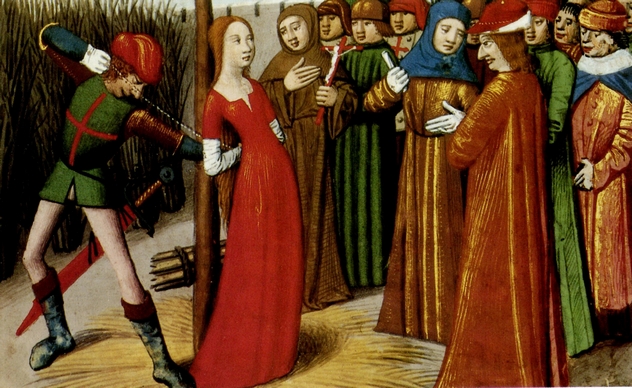
Known now as:
A maiden who answered a call from God to become a soldier and lead France to a miraculous victory. According to her testimony before an English court prior to her execution, she never killed anyone in the heat of battle. She was made a saint 489 years after her execution.
Known then as:
Despite her legacy, Joan of Arc said and did some things that seriously undermine her claims of not killing even in the heat of battle. At the time, she bragged that she made “good slashes” with her sword in battle, meaning at least that she swung her sword at the enemy. A bit more damning to her nonviolent reputation is the fact that she broke the same sword by hitting a camp follower across the back with it. That’s hardly something you’d expect of a saint and is also an act that the King of France took to be a bad omen, causing Joan to lose his favor. This isn’t to denigrate her enormous achievements and her service to France, just to correct some erroneous mythologizing.
1Al Capone
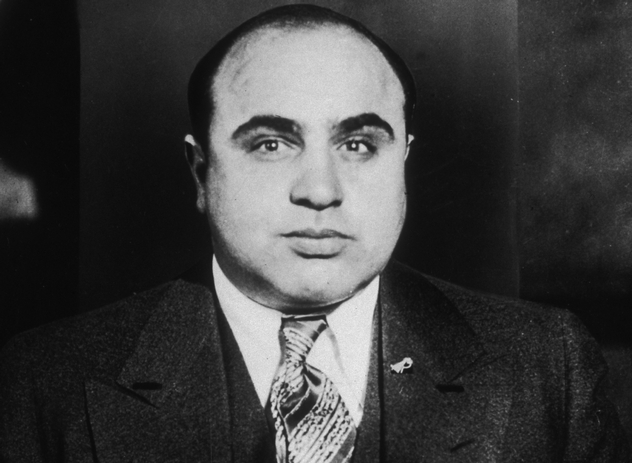
Known now as:
One of the worst thugs of the underworld who climbed to the top of the liquor trade, at least according to recent movies like The Untouchables. People currently believe such far-fetched stories as the one where he killed someone with a bat at the table during a dinner party. The movie even portrays him as blowing up shops with little girls inside.
Known then as:
While there’s no denying that Capone has ordered and inflicted significant violence, the man had a better grasp of public relations that you’d expect of a mobster from that time. After the collapse of the stock market in 1929, he donated clothes and other goods to the impoverished and opened soup kitchens in Chicago. Some newspapers claimed that Capone was doing more for the poor of Chicago than the US government (although this was in part due to Capone’s thugs busting newspaper worker strikes). These tactics seemed to have worked, as shown by such bits of evidence as a 1927 poll of Chicago college students, who ranked him as one of the 10 most outstanding people in the world. Although that was a poll of college students, so take that for what it’s worth, capisce?
Dustin Koski is also featured in the latest Listverse book.







